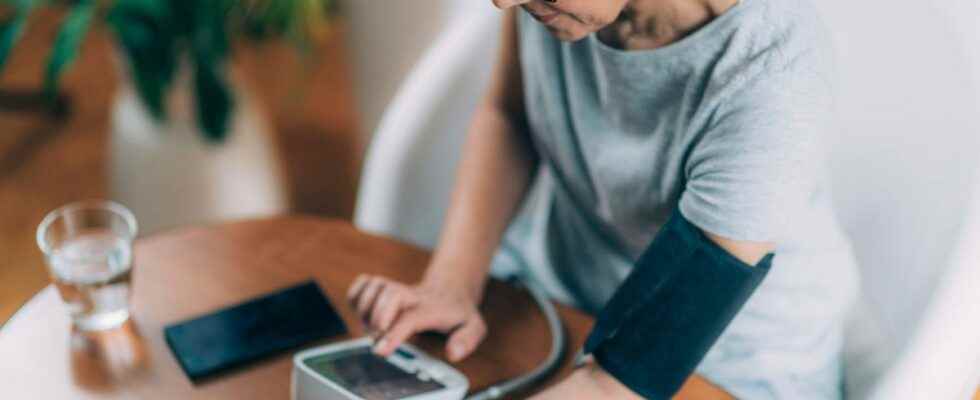Published on
Updated
Reading 2 mins.
According to a recent study, managing your blood pressure via teleconsultations is as effective as being monitored in real life by a doctor. The results relating to more than 3000 hypertensive patients plead in favor of a generalization of this type of service.
High blood pressure can be a difficult disease to control. Regular consultations are necessary to establish the right treatment and for the patient to be monitored. American researchers have therefore studied the differences between real consultations and teleconsultations to monitor it.
Hypertension, a major risk factor
Indeed, arterial hypertension is an important risk factor for pathologies such as myocardial infarction or cerebrovascular accidents and it must be regularly checked. What if teleconsultation was a reliable way to do it?
American scientists studied the question by recruiting 3,071 volunteers whose average age was 60, whose average blood pressure was around 158/92 at the start of the study. This work took place within the framework of a randomized clinical trial involving 21 healthcare clinics in the states of Minnesota and Wisconsin.
Such effective teleconsultations
Result: teleconsultations, carried out with telemonitoring of blood pressure at home and care coordinated by a pharmacist or a nurse, are as effective in terms of monitoring as face-to-face visits with a doctor.
The teleconsultation measurements revealed a reduction in average blood pressure of 18 mmHg on the systolic measurement and 10 mmHg on the diastolic blood pressure. “But there was no significant difference in the change over time in systolic or diastolic blood pressure between the two groups” wrote the researchers.
“Satisfied” patients… but not always assiduous
“After six months of follow-up, patients in telehealth were more satisfied with their treatment than patients in the clinic” said Karen Margolis, executive director of research at the HealthPartners Institute, professor of medicine at the University of Minnesota Medical School in Minneapolis and lead author of the study.
“These results suggest that telehealth team care by pharmacists is an effective and safe alternative to clinic-based care for uncontrolled hypertension”. The researchers’ conclusions are, however, limited by “very low adoptionof the method, as only about 30% of participants completed the telehealth sessions.
